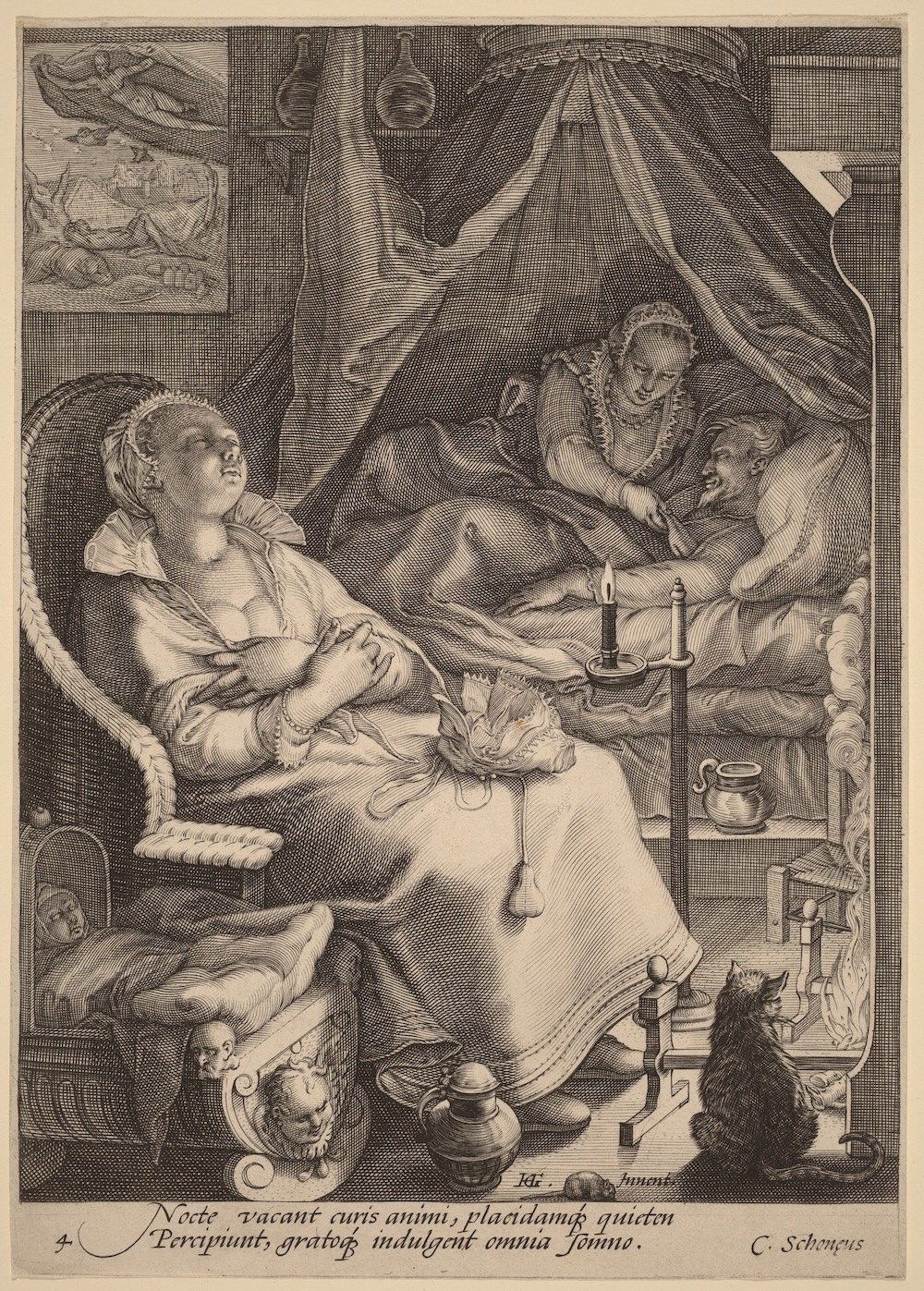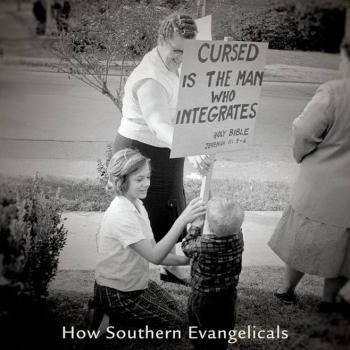Americans don’t sleep well. According to one poll, more than half of people between the ages of thirteen and sixty-four experience a sleep problem almost every night. There’s an entire industry—sleep studies, sleep coaching, sleep number mattresses, sleeping pills—built on resting better. The sleep economy in 2024 stood at $13.5 billion, and that number is only expected to rise again this year.
Poor sleeping isn’t just annoying. It’s dangerous. A recent study by the CDC suggests that nearly five percent of adults nodded off at the wheel at least once in the previous month. The U.S. Department of Transportation says that D.W.D.—driving while drowsy—causes 40,000 injuries and more than 1,500 deaths a year in the United States.
If sleep analytics can’t fix the problem, perhaps religion can. There’s an intriguing clue in Charles Wesley’s great hymn “Love Divine, All Loves Excelling.”
Breathe, O breathe thy loving Spirit
into every troubled breast!
Let us all in thee inherit;
let us find that second rest.
Take away our bent to sinning;
Alpha and Omega be;
end of faith, as its beginning,
set our hearts at liberty.
Here’s the key line: “Let us find that second rest.” Many church hymnals have edited that line to read “Let us find that promised rest.” However, according to historian Roger Ekirch, that revision obscures an important reality of premodern life.
Until a century and a half or so ago, our premodern forbears didn’t sleep in one long stretch. They slept in two segments, one beginning not long after the sun went down. Four or five hours later, they woke from their “first sleep.” They engaged in a variety of activities—rattling around the house, praying, meditating, visiting the toilet, reading, having sex, smoking. (Benjamin Franklin reportedly liked to spend this time reading naked in a chair.) Eventually, they lay back down in bed for their “second sleep.”

After The First Sleep
Ekirch has unearthed more than 500 references to biphasic sleep. In terms of chronology, they range from Homer’s Odyssey to an anthropological account of modern tribes in Nigeria. He says that the practice continues in numerous contemporary pre-industrial, non-Western societies.
In terms of genre, Ekirch found references in diaries, court records, medical books, and literature. A character in the “Canterbury Tales,” for instance, decides to go back to bed after her “firste sleep.” A doctor in England wrote that the time between the “first sleep” and the “second sleep” was the best time for study and reflection. Countless prayer manuals from the late fifteenth century offered special prayers for the hours in between sleeps. A doctor’s manual from sixteenth-century France advised couples that the best time to conceive was not at the end of a long day’s labor but “after the first sleep,” when they “have more enjoyment” and “do it better.”
Here are more examples:
- “He knew this, even in the horror with which he started from his first sleep, and threw up the window to dispel it by the presence of some object, beyond the room, which had not been, as it were, the witness of his dream.” —Charles Dickens, Barnaby Rudge (1840)
- “Don Quixote followed nature, and being satisfied with his first sleep, did not solicit more. As for Sancho, he never wanted a second, for the first lasted him from night to morning.” —Miguel Cervantes, Don Quixote (1615)
- “And at the wakening of your first sleepe You shall have a hott drinke made, And at the wakening of your next sleepe Your sorrowes will have a slake.” —”Old Robin of Portingale,” an early English ballad
- The Tiv tribe in Nigeria employs the terms “first sleep” and “second sleep” to refer to specific periods of the night.
Not all scholars are convinced. But Ekrich stands by his research. “It’s not just the number of references,” he explains. “It’s the way they refer to it, as if it was common knowledge.”
Profoundly Disrupted Sleeping Habits
We don’t we sleep this way anymore. References to first and second sleeps started to disappear in the eighteenth century, first among the urban upper classes in northern Europe. Over the course of the next 200 years, it filtered to the rest of Western society. By the 1920s it had receded from modern consciousness altogether.
Why? Scholars blame industrial capitalism. Factories regimented work into discrete periods and sleep consolidated into one long stretch that fit between those very long work periods. Lighting probably also was a factor. Street and house lamps meant that people could more easily work and enjoy leisure into the night. These developments profoundly disrupted sleeping habits.
We’ve paid the price, says Ekirch. Our bodies didn’t evolve to sleep in one long stretch between 11 p.m. and 6 a.m. Essentially, we’ve undone thousands of years of segmented sleeping in just a couple of centuries. No wonder we’re all so miserable.
His Song Shall Be With Me
Recent experiments seem to confirm this. Psychiatrist Thomas Wehr did an experiment in the 1990s in which his subjects lived in darkness fourteen hours a day for an entire month. By the end they had moved back to the old pattern: sleeping for four hours, then waking for one hour, then settling into a second four-hour stretch of sleep. This seems to suggest a continuing instinct for a “second sleep.”
So what does this have to do with religion? The Abrahamic traditions advise praying at night. Muhammad is said to have said, “The closest that a servant comes to his Lord is during the middle of the latter portion of the night. If you can be among those who remember Allah the Exalted One at that time, then do so.” The Psalmist declared, “Yet the Lord will command his lovingkindness in the daytime, and in the night his song shall be with me, and my prayer unto the God of my life” (Psalm 42:8). Among Christian monastics the “middle of the night” prayer hour known as Vigil or Matins is typically celebrated between midnight and dawn.
So if you wake up in the middle of the night and can’t immediately get back to sleep, don’t panic. What you’re experiencing might be more “normal” than those who sleep straight through the night.
Don’t watch television or scroll on your phone. Do what the premoderns did. Embrace your partner. Read. And pray.
“O Lord our God, keep us in peace during this night and at all times. Keep our hearts and thoughts secure in holy reverence for you, so that we may be protected at all times from the snares of the enemy.”
















